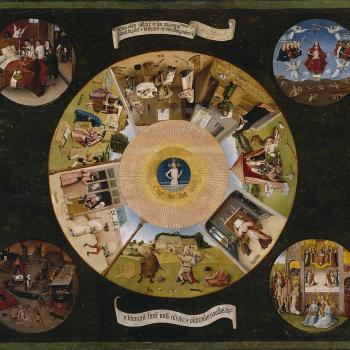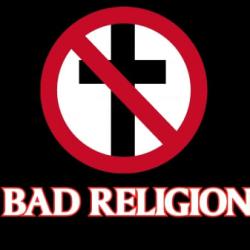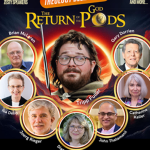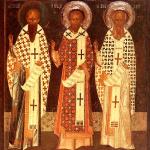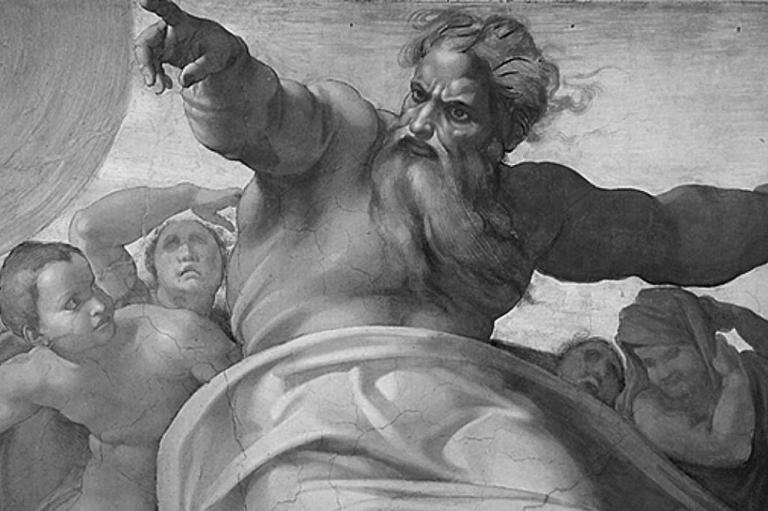
A reader named Paul wrote to me with the following question:
Why is there more often than not such an intolerance, condemnation and even hatred between the different faiths and denominations ? Is it the Devil causing this?
Paul, thanks for your question. Before I get into it, I must say that I think “The devil made me do it” is the ultimate cop-out, so I believe we need to dig deeper to understand why Christians can be so unkind — not only to one another but to anyone.
On his Redeeming God blog, Christian author Jeremy Myers wrote a post called “Why are Christians so mean? Here are 10 Excuses Church People Give for Treating Others Badly.” His list of “reasons” is pretty sad, really more a recounting of the ways any human beings, not just Christians, justify and rationalize their own poor behavior, ranging from “Hey, nobody’s perfect” to “I’m no worse than anyone else.”
It might be tempting to think that Christians have gotten worse over time — that as our society decays, everyone — including Christians — have shorter fuses and less bandwidth for compassion and kindness. But unfortunately, history reminds us that bad behavior goes all the way back to the beginning. I recently saw a wonderful documentary about the ordination of the first women priests in the Episcopal Church called The Philadelphia Eleven (try to see it if you can). On the one hand, it’s an inspiring story of women so committed to their faith and their own sense of a vocation to serve God that they were willing to buck the conventions of their time that said only men could be in leadership positions. But on another level, the movie is a heartbreaking record of how much venom and hatred was aimed at these women, because they “broke the rules” (the first women ordained as priests in the Episcopal Church did so before the leadership of the church permitted them to do so, so naturally their opponents decried them for “rebellion” and “disobedience” — but the name-calling and the angry rancor got much, much worse than that).
The ordination of the Philadelphia eleven happened in 1974, half a century ago. Christians did not need social media or smartphones to issue death threats and warnings of eternal damnation to the people they didn’t like.
And the biographies of Civil Rights leaders like Pauli Murray or Martin Luther King Jr. remind us that the hatred of white Christians for black Christians runs deep — and has been with us for many years now.
Let’s not forget that the hatred between different groups of Christians — which is what my reader specifically is referring to — goes all the way back to the schism of the eleventh century and the reformations of the sixteen century. Add to that the hatred that Christians have had for Muslims (think of the Crusades) and the Jews (pogroms) and it’s clear that Christianity, as a cultural movement, has failed spectacularly at the most basic and foundational of its teachings: “Love your neighbor as yourself.”
Jesus taught not only that we should love our neighbors, but indeed that we should even love our enemies (Matthew 5:44). But it appears that for too many Christians, the opposite dynamic is at play: we not only hate our enemies, but we hate our neighbors as well.
So back to the question: why? Why are Christians like this? If we can’t just hide behind blaming the devil, what is really at play here.
A Theology of Christian Intolerance
I don’t believe the devil makes Christians so mean. If anything, I think Christian hatred is inspired not by the devil they fear, but by the God they worship.
To be more precise, when Christians hold a toxic image of God, then they are more likely to engage in toxic behaviors.
Here’s a way to think about this theologically. God is ultimately a mystery that we cannot put into words. Great mystics from even the earliest centuries of the Christian era (like Dionysius the Pseudo-Areopagite, who lived ca. 500 CE) have taught that no human mind or tongue can contain even a fraction of the fullness of God. Trying to fit God into human knowledge is like trying to pour the ocean into a teacup. We simply cannot do it.
So what do we do? We try to make sense of the mystery of God by telling stories about God. These stories range from Biblical writings to the recounting of mystical experiences, to deeply philosophical theological writings. Every generation, century after century, the greatest minds of the Christian community — and everyone else — tries to articulate what we believe, what we understand, the nature of God to be.
And it’s all just so many teacups attempting to hold the ocean.
In the spiritual direction world, we talk a lot about “image of God.” Every human being (yes, even atheists) have an image of God. We have an idea in our tiny little skulls about what God is like. Is God infinitely loving, or filled with wrath? Is God’s justice fueled by compassion or by a desire to punish? Does God want God’s followers to be living examples of compassion and care, or is God mainly interested in our obedience and conformity to a narrow understanding of what “holiness” and “righteousness” might be?
We could extend this infinitely. Is God masculine or feminine (or some nonbinary other)? Is God warm and loving like a grandmother, or cold and distant like a prosecuting attorney? Is God generous about making exceptions to the rules, or such a stickler that the tiniest infraction must be swiftly condemned? And on and on we could go.
Everyone has an image of God. For most of us, that image may grow and evolve over the course of our lifespan. But no matter how “big” or flexible or complex our image of God might be, that’s just a bigger teacup; it’s still very small compared to the ocean itself.
Now, many human beings seem to operate under the rather amusing idea that they have managed to learn the one, absolute, objective truth about who God is and how God interacts with humanity. They may base this on a sacred text like the Bible or the Qur’an. Or they base it on what they have learned from their family, friends, church or other faith community. It almost doesn’t matter where they got it: they are convinced that they have found the golden ticket; they have found, out of all the possible ways of thinking about God and talking about God and constructing an image of God, the one absolutely certain and infallible truth.
In fairness, I think this is such a common way of thinking among so many people of faith that it’s kind of like a mass hypnosis. They have swallowed the blue pill and have shut off the capacity for critical thinking in their mind that says, “But what if all this isn’t really the way I think it is?” I don’t think that people are evil for doing this, but I do think it has harmful consequences. And chief among those harmful consequences: as soon as we have chosen (most likely subconsciously) to believe that our image of God and our beliefs about God are the absolute truth, then we immediately find it threatening that other people see things (including God) differently.
Subconsciously or consciously, we assume that two competing theories about what’s really real cannot both be absolutely true. And we find it threatening to consider that our image or theology of God might be wrong (or even incomplete). And then our reptilian brain kicks in: the part of human consciousness that is concerned with self-protection and maintaining a sense of safety. To extend the reptilian metaphor: like a snake striking out at a perceived threat, we lash out at those whom we perceive as threatening: whether they hold different beliefs, vote a different way, or merely want to change how Christianity understands race, or sexuality, or gender.
Hence, the meanness and intolerance and nastiness that my reader Paul has asked me to explain.
So it’s not so much “the devil made me do it,” but it’s a combination of “my reptilian brain inspired it, based on my limited and limiting beliefs about God and humanity.”
Now, I recently wrote about how frustrated I have become with the institutional form of Christianity. Someone might sensibly ask, “Shouldn’t Christians work harder than most people to overcome their reptilian biasses and prejudices, given how Jesus instructed us to love each other and even love our enemies?” It’s a fair question and a good question: it seems to be such a major disconnect between the core message of Jesus and the way Christianity gets practiced by so many churchgoing Christians. And I blame the institution. I think as Christianity has become crystallized into various institutional churches, The churches have tended to promote their own interests before the radically liberating message of Jesus. So if you are a Catholic, you get a very strong message (usually in subtle and perhaps even coded ways) that being a good Catholic is what is essential to following Jesus. So Jesus’s own teachings are submerged below a demand that you be loyal to the institution. And I am just using Catholicism as an example: every form of Christianity does this to a greater or lesser extant: “We have the most pure teaching. We are the most Bible-centered. We have preserved the New Testament message” etc. etc. But any messages like this automatically undermine Jesus’s message of radical inclusivity and equality. Jesus wants to gather us all in as one, but it is the nature of any institution to draw boundaries between insiders and outsiders. And once that boundary is erected, it becomes far too easy to indulge in toxic behavior that causes harm rather than fosters relationship.
Signs of Hope?
Not all Christians are jerks, thank heaven. Perhaps many of the nasty and mean-spirited Christians that you might run into through social media are actually very young, very immature, very uneducated. I do think there is hope in the fact that many Christians want to foster a more truly kind and compassionate spiritual culture. And even some institutions seem committed to fostering a world where justice, equality, inclusivity, and community matter more than abstract ideologies of purity, holiness, and exceptionalism. But there is still so much work to be done, and in the meantime, toxic ideas about Christian nationalism, “purity” culture, scapegoating of Muslims or queer people or other “outsiders” continues to poison our common atmosphere and undermines the beauty of Jesus’s message.
In 1974, many Episcopalians (and not just women) supported the ministry of the Philadelphia Eleven and other “early adopters” of women’s ordination. In the 1950s and 1960s, many people of all ethicities marched together on behalf of civil rights and the need to dismantle racism in our institutions and in our hearts. Today, many people of goodwill (not just Christians, but yes many Christians as well) want to see society become more affirming of all people, regardless of religious belief, gender or sexuality, economic status, ethnicity, or physical ability. I do believe there are signs of hope, everywhere we care to look, that Jesus’s message of love, compassion, mercy, and community is being carried out.
But there is still a long, long way to go. And we cannot rely on big institutions (religion, government, business, universities) to do it for us. I believe the “law of God” is written on every human heart, and what that means is that every human being knows deep down inside that love, kindness and compassion matter more than religious dogma, theological ideology, or church affiliation. But because of social pressure, trauma, psychological immaturity, addiction, stress, and other issues, too many people are still drugged by the blue pill. We have a long, long way to go before the earth becomes the beloved community that spiritual leaders like Jesus and the Buddha envisioned. But it is worth it to keep on working for that goal.
One Final (Mystical) Thought
In his classic poem Auguries of Innocence, William Blake wrote these iconic lines:
To see a World in a Grain of Sand
And a Heaven in a Wild Flower
Hold Infinity in the palm of your hand
And Eternity in an hour
How does my “ocean in a teacup” theory stand up in the light of Blake? It’s easy to see the ramifications of Blake’s wisdom: sometimes, entirely by divine grace, we just might get a glimpse of the entire ocean, even in a teacup — just like we see the world in a grain of sand or heaven in a wild flower. You can’t put limits on God’s grace any more than you can truly capture the fullness of God’s being in cognitive thought.
But that’s the key here. Blake doesn’t say “to understand the world in a grain of sand,” he says to see. Mystics can see the entire ocean in a teacup: that’s what makes them mystics. But despite Blake’s (and others’) contemplative wisdom, my analogy still stands, because the problem of the ocean and the teacup is a theological and doctrinal problem, not a mystical problem. When we see the world in a grain of sand, or the ocean in a teacup, or eternity in an hour, the visceral mystical response is complete and utter awe and devotion. The ultimate evidence of true mysticism is love — not elevated thoughts, not profound theology, not brilliant philosophy, but love. Which of course reminds us of the fundamental principle in The Cloud of Unknowing:
Through God’s grace, our minds can explore, understand, and reflect on creation and even on God’s own works, but we can’t think our way to God. That’s why I’m willing to abandon everything I know, to love the one thing I cannot think. God can be loved, but not thought. By love, God can be embraced and held, but not by thinking. (chapter 6)
God can be loved, but not thought. Key contemplative wisdom here. This is why we pray through the medium of silence. Maybe if both Christianity-as-an-institution and individual Christians (especially the angry ones, but really all of us) could learn to love God more and worry over thinking about God less, we might just inch a bit closer to truly following Christ: and people like my reader Paul won’t need to struggle over the paradox of Christians being so intolerant and mean. Just something for all of us to consider!






